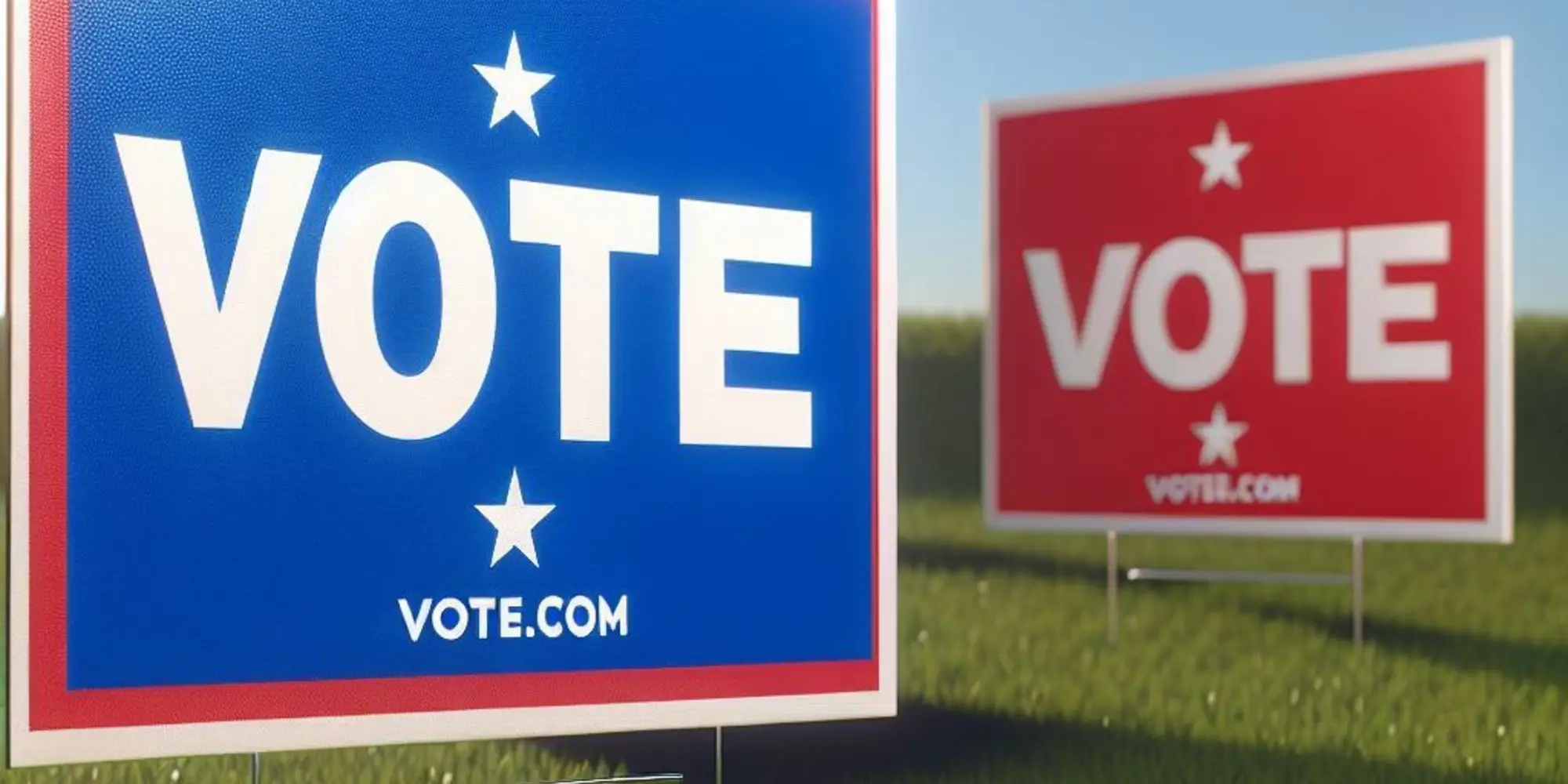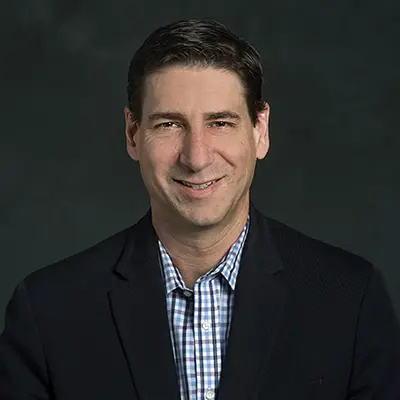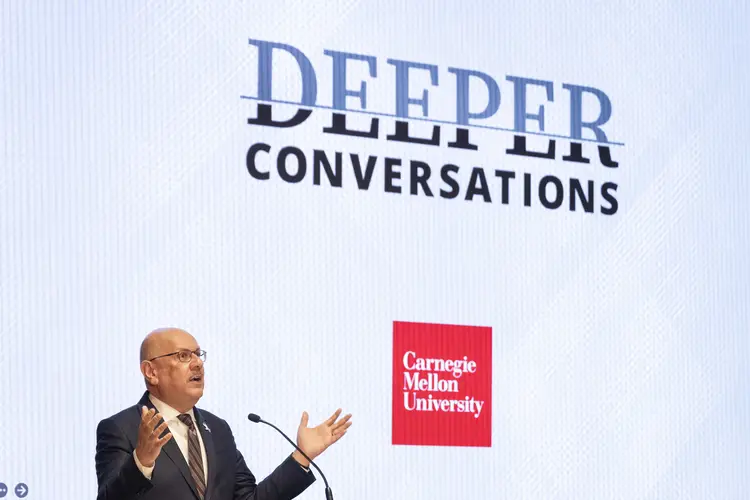
Managing Election Anxiety May Mean Less Time on Social Media
Media Inquiries
In these final weeks leading up to the 2024 U.S. presidential election on Nov. 5, the online barrage of campaign ads and relentless stream of political news and opinions will only intensify.
“You really can’t get away from it,” said Sean Burke, vice president of a healthcare startup who is pursuing a master’s degree in public management(opens in new window) at Carnegie Mellon University. “Even if I try to stay off of political subreddits, I can’t watch a video on Youtube without seeing ads for both candidates. You truly have to be in the woods offline if you want to avoid it.”
It can be challenging to break away from the screens, in part because social media is designed to keep users engaged and online.
Ari Lightman(opens in new window), a distinguished service professor of digital media and marketing in Carnegie Mellon’s Heinz College of Information Systems and Public Policy(opens in new window), explained, “The algorithms on social media platforms work in a similar fashion to how marketers use recommendation engines. These systems can help predict what content online users will likely engage with or consume. In addition, through ingesting vast amounts of usage data and associating it with online personas, algorithms can predict your interests and community associations with your behavior patterns. This is especially true when there is a high degree of relevance between messaging and an online user's ideology. There is no escaping it. It is happening continuously and constantly.”
Can legislation help ease election anxieties?
Sen. John Fetterman, D-Pa., together with Sen. Katie Britt, R-Ala., recently introduced legislation to create mental health warning label requirements for social media platforms. The bipartisan Stop the Scroll Act(opens in new window) would ensure users are aware of the potential mental health risks associated with social media use.
The average person spends 2.5 hours a day on social media. According to this year’s American Psychiatric Association’s annual mental health poll(opens in new window), adults in the U.S. are feeling increasingly anxious, with 73% of those surveyed saying they feel particularly anxious about the election.
“People are getting fed up with the political discussions online, but there is still a heavy population that’s using social media to promote their messaging and appeal to their base, so we’re constantly exposed to it,” Lightman said. “We’re constantly inundated.”
How are CMU professors addressing anxiety?
J. David Creswell(opens in new window), the William S. Dietrich II Professor in Psychology and Neuroscience at CMU, said if people care about the outcome of an upcoming election, it can be easy to get stuck in patterns of anxiety and stress.
“Election season is kind of like riding in a plane. We don’t have much control over what happens, and for some people that can be overwhelming,” Creswell said. “One approach can be — to wrestle back a sense of control during election season — is to think about ways you do have control, such as how you can vote and make a difference. Researchers call this coping strategy cognitive reappraisal. It’s basically thinking differently in ways that lessen our negative emotions.”
Creswell has dedicated much of his research to understanding how mindfulness and equanimity can enhance resilience and performance. Leveraging over 15 years of research from his Health and Human Performance Lab(opens in new window) at CMU, Creswell co-founded Equa(opens in new window), a mindfulness training app designed to help users manage stress and improve their overall wellbeing. CMU students, faculty and staff can download the Equa app(opens in new window) and use their @andrew.cmu.edu email address to unlock a complimentary subscription, thanks to the university’s partnership with Equa Health.
What strategies are students using to cope with election anxiety?
Sofia Reyes Franco considers herself somewhat anxious about the election. As a senior studying information systems at Carnegie Mellon, she is familiar with how algorithms work. She’s actually in the process of developing an app that would use algorithms to help develop personal styling choices.
Franco has plenty of friends who discuss politics online and in person, but she prefers to keep her political views to herself.
“I’m trying to stay out of it for the most part,” she said. “My voice will be heard when I cast my vote.”
Franco’s strategy for keeping calm between now and Nov. 5 includes staying off social media and keeping busy with school work and other interests.
“I’m on the Club Swimming(opens in new window) team, so I’ll go to practice. Club swimming is a fun way to keep in shape and be part of a great group of people on campus. We have practices three times per week and have various social events,” Franco said. “But mostly, I’ll just focus on my homework. I also read a lot. I’ll read just to kind of get myself out of this space and be transported into a different reality.”
Burke has a golden retriever that loves to go on walks, so getting outdoors will be his number one strategy for managing stress between now and election day. He and his wife also enjoy going to the gym.
The analytical approach to social media and elections
As students in Lightman’s Measuring Social(opens in new window) class this semester, Burke and Franco are gaining tools and knowledge for analyzing social media to benefit global brands, and they are getting to apply it all in real time.
“Good timing or bad timing, it’s super interesting to be taking this course during the presidential campaign. We’ll learn and discuss something in class, and then I’ll look at my phone and it’s all right there. So, there’s that epiphany moment of ‘oh, right, that makes sense.’” he said.
Given the vigorous and sometimes heated debates online, Burke particularly appreciates Lightman’s analytical approach.
“It really helps you to take a step back and put a different lens on how you view these things, to look at what’s happening online more objectively rather than get caught up in it,” Burke said.
So what can you do to help ease election anxiety? Three quick tips
Stay active. CMU offers free fitness classes(opens in new window) for faculty, staff and students.
Calm your mind. Headspace(opens in new window) offers several election-related meditations.




